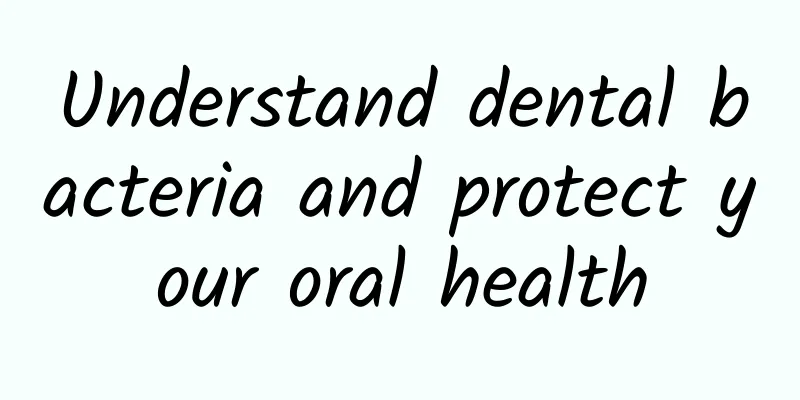Using fat instead of carbohydrates to lose weight? It's hilarious, be careful not to get sick

|
Instead of eating rice and steamed buns, they eat a lot of meat and fish, and even drink tons of oil. What is this? In recent years, a weight loss method called the ketogenic diet has become popular. It does not require dieting or high-intensity exercise. You only need to eat less carbohydrates and more fat to easily achieve the goal of weight loss. Many friends are eager to try it. However, a recent study may pour cold water on this popular weight loss method. The study examined the effect of the ketogenic diet in the treatment of serious diseases such as cancer and diabetes, and came to an unexpected conclusion: the popular ketogenic diet is harmful to most people! The “highlight moment” of the ketogenic diet A ketogenic diet is a dietary pattern that is high in fat, adequate in protein, but very low in carbohydrates. In a normal diet, carbohydrates are the main source of energy for the human body, while the ketogenic diet aims to force the body to switch to another "fuel" - fat. When carbohydrate intake is reduced, the body will produce ketone bodies by promoting fat decomposition as the energy source for the body's operation, and the body will enter a "ketosis" state. The production of ketone bodies requires strict control of carbon water and protein intake, and the intake of a large amount of fat. In the 1920s, the ketogenic diet was developed to treat intractable epilepsy in children. There is now strong evidence that the ketogenic diet can reduce epileptic seizures in children. Gradually, people discovered that the ketogenic diet has another effect: helping to lose weight. This dietary strategy has gradually become popular. When a ketogenic diet is adopted, carbohydrate intake is low and blood sugar sources are low, so the body is forced into a "simulated starvation" state. At this time, a large amount of body fat will be broken down to provide energy for the body, and eventually the body will enter a high-speed fat burning state to achieve the purpose of weight loss. However, since the ketogenic diet is difficult to maintain, once you "cheat" on substandard carbohydrates and proteins, the ketogenic diet will fail. Previous studies have shown that patients on a ketogenic diet or a very low-carbohydrate diet lose weight faster than participants on a traditional low-fat diet or even a Mediterranean diet. However, the difference in weight loss seems to disappear over time. In addition, the ketogenic diet is often accompanied by significant side effects, including fatigue, gastrointestinal dysfunction, arrhythmia, constipation, diarrhea, headache, stunted growth, etc. However, encouraged by the successful cases of treating childhood epilepsy, scientists are still very curious about whether the ketogenic diet will also have a therapeutic effect on other brain diseases, such as Parkinson's disease, Alzheimer's disease, sleep disorders, autism, and even brain cancer? There are indeed some studies that show that the ketogenic diet can reverse the symptoms of certain diseases. A study by the American Academy of Neurology found that the ketogenic diet may have some benefits for some people who have completed a brain tumor treatment plan (radiotherapy and chemotherapy). Glucose causes cancer cells to divide and multiply. Based on the theory that cancer cells cannot use ketones as energy, the research team conducted an 8-week ketogenic diet treatment plan. The subjects were instructed to follow a ketogenic diet for 5 days a week, followed by two days of intermittent fasting. The results showed that most participants experienced some positive changes in their bodies and brains during the ketogenic cycle [1]. An article published in Nature in 2018 attracted widespread attention. The article stated that the ketogenic diet can inhibit the insulin feedback pathway, improve the resistance of insulin-induced PI3K inhibitor anticancer drugs, and significantly improve the efficacy of drugs [2]. However, a careful analysis of the study revealed that the ketogenic diet is only an auxiliary means of treating certain cancers, not the main treatment. Gradually falling from the altar Sticking to a ketogenic diet long-term is a challenge because food options are limited, yet adverse reactions are common. In August 2021, a review article published in Frontiers in Nutrition conducted the most comprehensive evaluation of the ketogenic diet to date, weighing the pros and cons of this dietary strategy with chronic diseases and concluding that the ketogenic diet may cause long-term damage to health [3]. Research shows that the ketogenic diet increases the risk of various diseases, including heart disease, cancer, diabetes and Alzheimer's disease, rather than any benefits it may provide. The study yielded five key findings: For many patients, a ketogenic diet raises levels of bad cholesterol (LDL-C), and therefore may increase the overall risk of chronic disease. Similarly, people with kidney disease may experience kidney failure more quickly when consuming a high-protein ketogenic diet. Even if pregnant women take folic acid supplements, their babies are at risk for potential neural tube defects [3]. Not only that, the study also found that by limiting the number of carbohydrates, the ketogenic diet will bring the overall dietary structure into the intake of foods that are more likely to increase the risk of cancer. For example, the types of foods commonly found in the ketogenic diet, such as red meat, processed meat, and saturated fat, are all related to other serious diseases. And the reduced intake of high-carb fruits, vegetables, and certain fiber-rich foods on the ketogenic diet can lead to unwanted side effects, such as fatigue and constipation, as well as vitamin and mineral deficiencies. So the study authors note that while there is precedent for the ketogenic diet being used to treat disease, the long-term effects of this diet on health are unclear because many ketogenic foods are actually associated with an increased risk of heart disease and cancer. The ketogenic diet has also been shown to improve blood sugar control in people with type 2 diabetes, at least in the short term. But when the effect on cholesterol levels is considered, it becomes more controversial. Some studies have shown that some patients have increased cholesterol levels at the beginning, but their cholesterol drops after a few months. However, there have been no long-term studies analyzing its long-term effects on diabetes and high cholesterol. Therefore, with the current limited theoretical guidance, a one-size-fits-all diet structure is not reasonable. The correct way to eat is to not go to extremes and to eat different types of food in a balanced way. In addition, according to a prospective analysis of follow-up data of nearly 200,000 people from the UK Biobank over more than 10 years, the relationship between macronutrients such as carbohydrates and fats and health conditions such as all-cause mortality and cardiovascular disease is nonlinear. The so-called "healthy diet" cannot be generalized. It should follow the doctor's advice and adjust the current diet. The detailed ingredients should not be ignored [4]. In short, in terms of diet, only a reasonable combination is good for health, and if it is not chosen properly, it will be harmful. To a large extent, most diseases are related to diet. Adjusting the diet pattern and improving the way of eating are shortcuts to prevent diseases. As for weight loss, we can just consume less energy and exercise more. After all, health is the most important thing. (Editor: Gao Peiwen) References[1] Karisa, et al. Feasibility and Biological Activity of a Ketogenic/Intermittent-Fasting Diet in Patients With Glioma. https://n.neurology.org/content/early/2021/07/07/WNL.0000000000012386.[2] Benjamin D.Hopkins, et al. Suppression of insulin feedback enhances the efficacy of PI3Kinhibitors, Nature (2018). DOI: 10.1038/s41586-018-0343-4.[3] Lee Crosby, et al. Ketogenic Diets and Chronic Disease: Weighing the Benefits Against the Risks, Front. Nutr. (2021). https://doi.org/10.3389/fnut.2021.702802.[4] https://www.bmj.com/content/368/bmj.m688. The article is published by "China Science and Technology Press" (ID: cspbooks). Please indicate the source when reprinting. |
>>: When is the best time to eat mandarin oranges? How to eat mandarin oranges
Recommend
Delayed and light menstruation
For women, there are always a few inconvenient da...
An 8-year-old girl has a lump in her breast. What's going on?
For an eight-year-old girl, if there are lumps in...
What medicine should I use for vulvar pain and itching
Itching and pain in the vulva are generally cause...
There is a black line on the belly when you are not pregnant
Many women want to know if it is normal to have a...
How is beer brewed? Does beer have a shelf life?
There is yellow beer, which is light yellow and b...
Height chart of girls before menarche
The first menstruation, that is, the first time a...
The reasons for sagging breasts, let you know the real situation
There are many reasons why women's breasts be...
Weaning breast precautions time is the most important
When a woman is weaning her baby, she should not ...
How many fingers dilated does the cervix usually need to be to give birth?
The female delivery process is very long, and gen...
How to determine if you have sensitive skin
How to determine if you have sensitive skin? Sens...
Vomit everywhere at popular tourist spots! A kind of candy is hot on the Internet, don't buy it or eat it →
Recently, there have been many gray-black oil sta...
What are the early symptoms of uterine cancer?
Generally, uterine cancer will have more obvious ...
Is glucose level 30 serious during pregnancy?
If a pregnant woman has a urine test after pregna...
What are the factors of irregular menstruation
Many modern women have irregular menstruation, wh...
How many days after menstruation is it easy to get pregnant
Preparing for pregnancy requires that a woman'...









